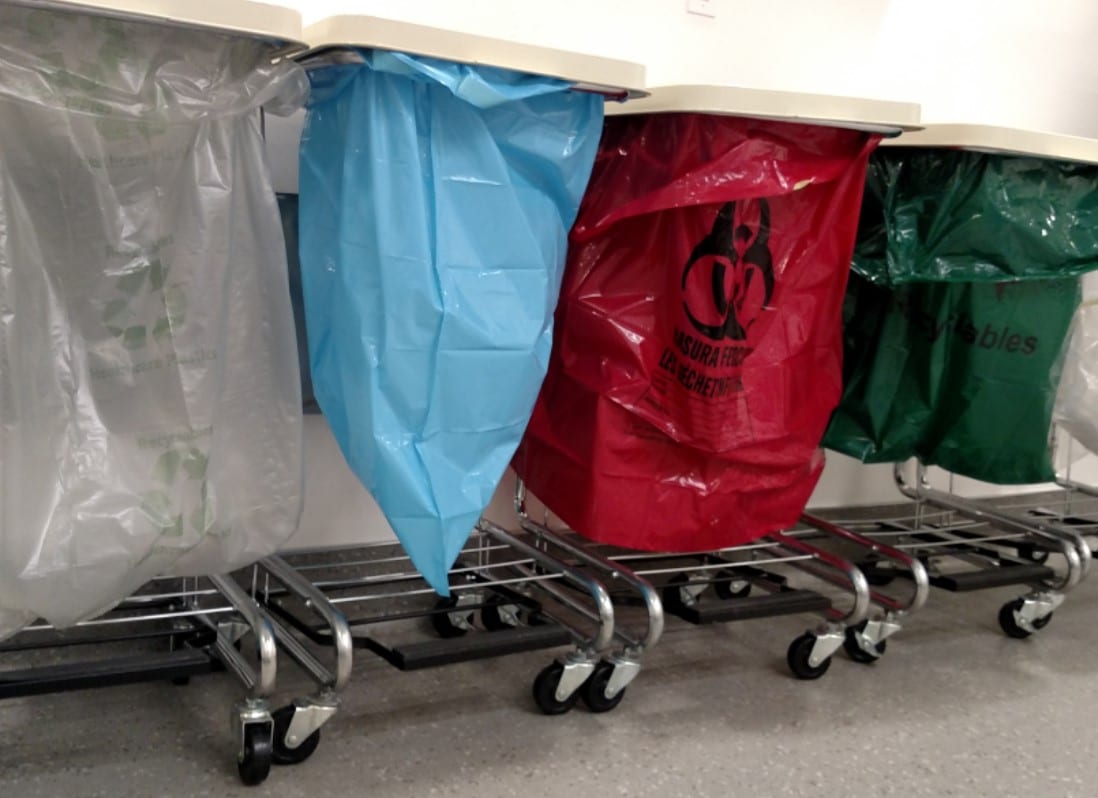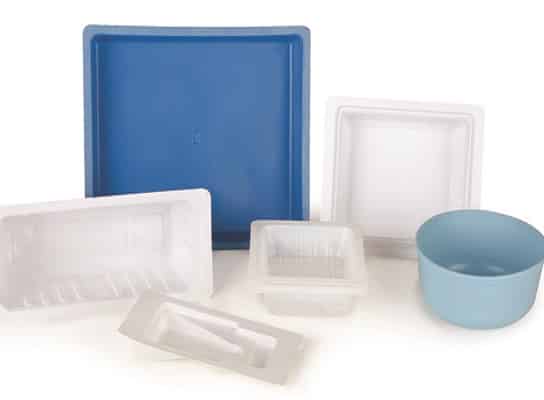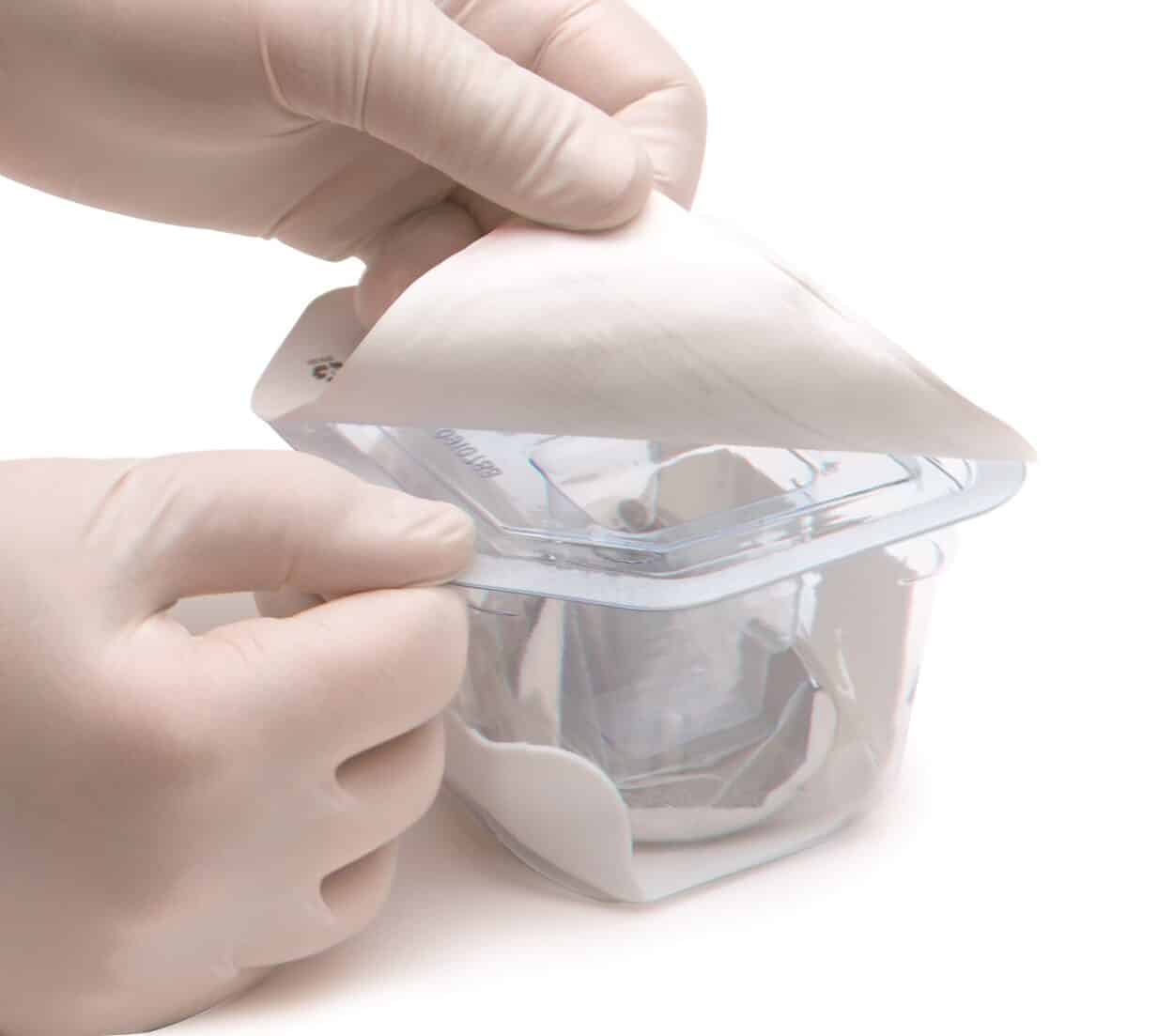Plastics have long been essential to modern healthcare and now Covid-19 has exacerbated the already major issue of how to deal with all the medical waste.
According to the World Health Organization (WHO), tens of thousands of tonnes of additional medical waste have been generated by the Covid-19 response, with much of it containing single-use plastic. The soaring production of personal protection equipment (PPE), as well as testing kits and vaccine packaging and containers, has put additional strain on healthcare waste management systems. But what is the solution when saving lives is paramount?
The Healthcare Plastics Recycling Council (HPRC) is working tirelessly to improve the recyclability of plastic products and packaging within healthcare. With members from the manufacturing, healthcare and recycling industries, it engages in pioneering projects designed to help boost plastics recycling in hospitals.
According to Communication Director Alison Bryant, the HPRC also works to enable a circular model, where healthcare plastic waste can be used to create new healthcare packaging and products. She observed:
“Modern healthcare would not be possible without the use of plastic. It has proved to be one of the few versatile materials that has been able to adapt along with the dynamic nature of the healthcare industry, delivering benefits that include sterility, quality, durability, and most significantly, patient and healthcare worker safety.
However, despite the many benefits, there are also unintended environmental consequences with single-use plastics and packaging in healthcare, namely the waste they create.”
Identifying Recycling Barriers
Areas generating the most plastic waste include operating theaters, ambulatory surgery, cardiac cath labs and interventional radiology, pre- and post-anesthesia, pharmacy and radiology. But why is this waste not being recycled?

Product design features inhibit recyclability, hospital staff lack training and there is limited space and infrastructure within hospitals to aggregate recyclable materials, according to the HPRC. Furthermore, recycler demand and availability to collect materials varies greatly by geography. Alison Bryant said:
“HPRC is unique in its focus on the identification of plastics recycling barriers and solution development along the entire value chain. We seek to affect plastics recycling from healthcare product design and manufacturing through product use, disposal and recycling.”
The organization researches and evaluates advanced recycling technologies and their suitability for healthcare plastics. It has launched a guide, Hospicycle, to help hospitals navigate the process of activating a plastics recycling program. She added:
“With sustainability becoming an increasing priority, healthcare organizations are determined to do more to address this plastic waste challenge.”
Strategic Action
One hospital tackling the issue head-on is US-based Beth Israel Deaconess Medical Center (BIDMC), one of Harvard Medical School’s teaching hospitals. Avery Palardy, Sustainability Program Manager, explained:
“As an academic medical center, single-use plastic is a part of every element of our operations, from our research laboratories and cafeterias and kitchens to our outpatient and patient care. It enters our facilities in the form of secondary and primary packaging as well as a part of the equipment and supplies that we require in these areas.
Healthcare operating rooms are estimated to generate 20 to 30% of our total waste and a substantial portion of this is plastic.”

But, she continued:
“In healthcare, not all plastic is bad, in many scenarios it is absolutely necessary given its durable, lightweight, and able to provide a sterile and safe environment for delivering extraordinary patient care. For us, the focus on plastic waste then becomes about identifying opportunities for reduction of unnecessary plastic and partnering with the recycling industry to develop the technology to recycle healthcare plastics.”
The hospital has a Zero Waste by 2030 goal and is already implementing its strategic action plan by focusing on redesign and reuse, as well as reducing, recycling, innovation and market development. Examples include evaluating opportunities to reduce plastic by switching to alternative reusable or reprocessable products. It has also pursued partnerships with vendors and distributors to ensure that they are focused on reducing secondary packaging.
She said:
“In the operating rooms, we have a Greening the Operating Room (OR) Working Group with representatives from anesthesia, perioperative, central processing, clinical engineering, and the post-anaesthesia care unit. They are dedicated to addressing the sustainability of our ORs, including the unnecessary plastic use. Their efforts have included identifying processes that lead to unnecessary use of supplies.”


The hospital has a Green Labs Working Group that identifies which laboratory plastics and materials can be recycled and then expands collections across facilities. She added:
“Additionally, they’ve identified and promoted vendors that have takeback programs for Styrofoam coolers, pipette tip boxes, and other common laboratory plastics that our researchers can utilize.”
A Growing Problem
According to Ms. Bryant, with sustainability becoming an increasing priority, healthcare organizations are determined to do more to address these plastic waste challenges. She stressed:
“Plastics are an essential part of healthcare and there is a legitimate need for single-use plastics, primarily to prevent infectious diseases. But research shows that plastic use in healthcare is only going to continue to grow into the foreseeable future, as global healthcare becomes more complex and urgent.”

She added:
“Healthcare, as an industry, holds tight to the philosophy of ‘do no harm’—it is in the business of health and healing people. So, when hospitals are sending billions of pounds of plastic waste to landfill or incineration, this is contradictory to the ‘do no harm’ mantra.
Therefore, finding environmentally friendly solutions to the plastic waste issue has a direct impact on human health—and is something that HPRC members are committed to driving forward, using recycling as an important tool.”











